In today’s fast-paced business world, startups need to be agile and adaptable. They must find innovative ways to solve problems quickly and efficiently without breaking the bank. Fortunately, no-code tools have emerged as a game-changer for startups with limited resources but big aspirations.
No-code tools empower entrepreneurs to build websites, mobile apps, and other digital products without writing a single line of code. This means anyone can create advanced software solutions within hours or days instead of months or years.
In this post, we’ll explore 12 Must Know No-code Tools for Startups. These tools can help you take your business to the next level while saving time and money along the way.
Table of Contents:
- What are No-code Tools?
- 12 Best No-code Tools for Startups
- Frequently Asked Questions
- Closing Thoughts
What are No-code Tools?
No-code tools are software applications or platforms that allow individuals without coding or programming skills to create, customize, and deploy various types of applications, websites, or digital solutions. These tools provide a visual interface, drag-and-drop functionality, and pre-built components that enable users to build and automate tasks without writing complex code.
No-code tools empower entrepreneurs, startups, and non-technical professionals to create software solutions and automate processes without coding knowledge. They democratize technology, eliminating the need to learn programming or hire developers. These tools make it accessible and efficient to bring ideas to life without traditional coding methods.
These tools often offer a range of functionalities, such as form builders, database management, workflow automation, website builders, e-commerce platforms, content management systems, and integrations with other software tools. They allow users to visually design user interfaces, define logic and workflows, and connect data sources without writing code.
No-code tools have gained popularity due to their ease of use, rapid development capabilities, and cost-effectiveness. They enable startups and individuals to prototype ideas, test concepts, and build functional applications without significant upfront investment or technical expertise. No-code tools empower users to solve problems, automate repetitive tasks, and create digital solutions quickly, efficiently, and with minimal technical barriers.
Why Startups Need No-code Tools?
- Cost-Effectiveness: Startups often operate on limited budgets, and hiring dedicated developers or outsourcing coding tasks can be expensive. No-code tools eliminate the need for hiring developers, reducing costs associated with development and maintenance.
- Time Efficiency: Traditional coding can be time-consuming, requiring startups to invest significant time and resources in learning programming languages or working with developers. No-code tools offer intuitive interfaces, pre-built components, and drag-and-drop functionality, enabling startups to create and deploy applications quickly, saving valuable time.
- Flexibility and Customization: No-code tools provide flexibility in designing and customizing applications to match the startup’s unique requirements. Startups can tailor the user interface, functionality, and workflows according to their specific needs, ensuring a personalized solution.
- Rapid Prototyping and Iteration: Startups often need to iterate and experiment with their ideas quickly. No-code tools facilitate rapid prototyping, allowing startups to test and refine their concepts, gather feedback, and iterate on their products without significant time investment.
- Empowering Non-Technical Teams: No-code tools enable non-technical team members to actively participate in the development process. This empowers startups to leverage the diverse skills and expertise of their team members, fostering collaboration and innovation.
- Scalability and Growth: As startups scale and grow, they require agile and scalable solutions. No-code tools offer scalability by allowing startups to add new features, integrate with other platforms, and accommodate increased user demand without extensive coding efforts.
People Also Read: 8 New AI Tools That You Need to Know
Usage of No-code Tools:
No-code tools can be used to build websites, smartphone apps, automate tasks, and even chatbots. These tools make it simple for anyone to create a unique solution for their company due to a variety of features they offer, such as drag-and-drop interfaces, pre-built layouts, and integrations with other software tools.
12 Best No-code Tools for Startups
1. NotionHQ – Notes
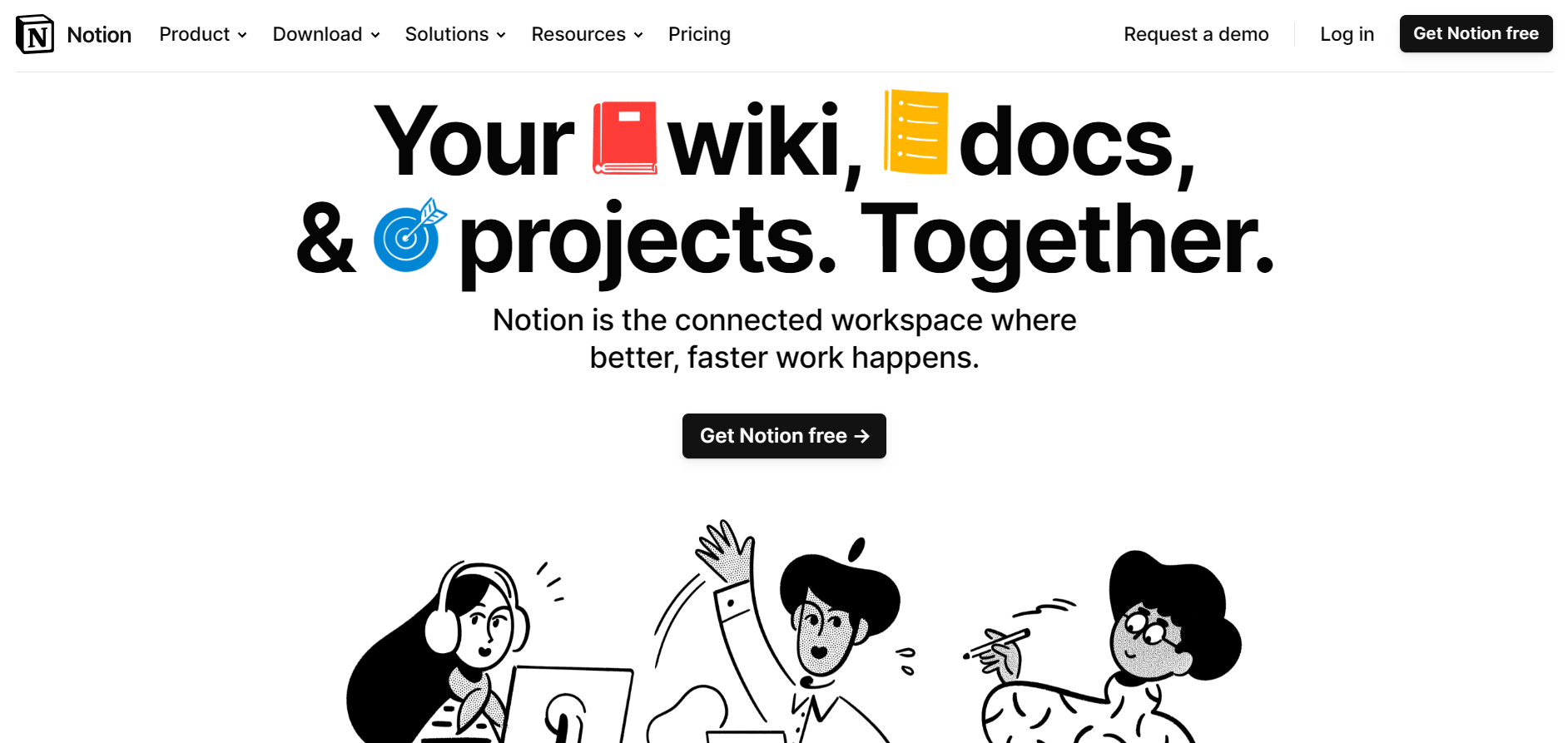
NotionHQ is a note-taking and project management platform that provides startups with a versatile workspace to manage their projects, tasks, and notes in one place. With its customizable templates, databases, and integrations. It enables startups to collaborate with their team in real-time, allowing them to work more efficiently and effectively.
NotionHQ’s user-friendly interface simplifies organization and helps startups create a structured workflow aligned with their business goals. Whether managing to-do lists, scheduling appointments, or tracking project progress, NotionHQ is a crucial no-code tool for startups aiming to streamline operations and enhance productivity.
2. WriteSonic – Writing Blogs

WriteSonic is an AI-powered copywriting tool that allows startups to quickly and easily create top-notch blog posts, articles, and written content. With its user-friendly interface and natural language processing capabilities, even those without writing experience can generate engaging and polished content that resonates with their target audience. Startups can begin by selecting from a range of writing templates and prompts provided by the platform, then personalize the content to align with their brand’s voice and tone.
WriteSonic’s AI algorithms analyze and optimize content for SEO, improving its visibility on search engines. Whether creating blog posts, product descriptions, or marketing copy, WriteSonic is a vital no-code tool for startups seeking high-quality written content without relying on a dedicated writer or copywriter.
3. Canva – Graphics
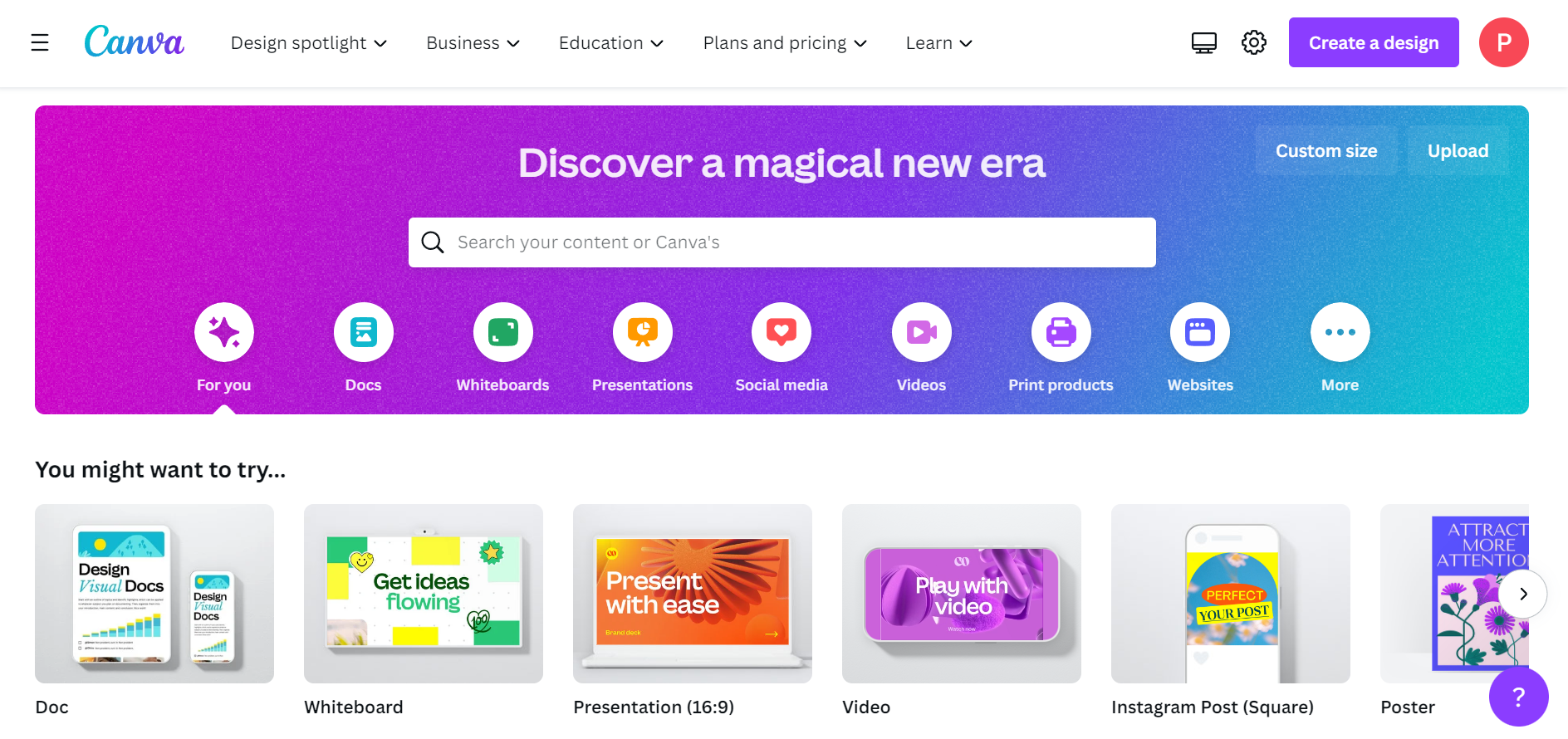
Canva helps startups create visually appealing and professional-quality designs, even without design experience. This user-friendly graphic design platform offers customizable templates for various design types like social media posts, infographics, flyers, and presentations. Startups can easily add their images, logos, and branding elements using Canva’s drag-and-drop interface, enabling them to create unique and branded designs.
Canva’s design tools and features simplify the adjustment of colors, fonts, and other design elements, ensuring visually appealing and on-brand designs. Whether creating social media posts, product flyers, or presentations, Canva is a must-have no-code tool for startups seeking high-quality designs without the need for a professional designer or design software.
4. Make_hq – Automation
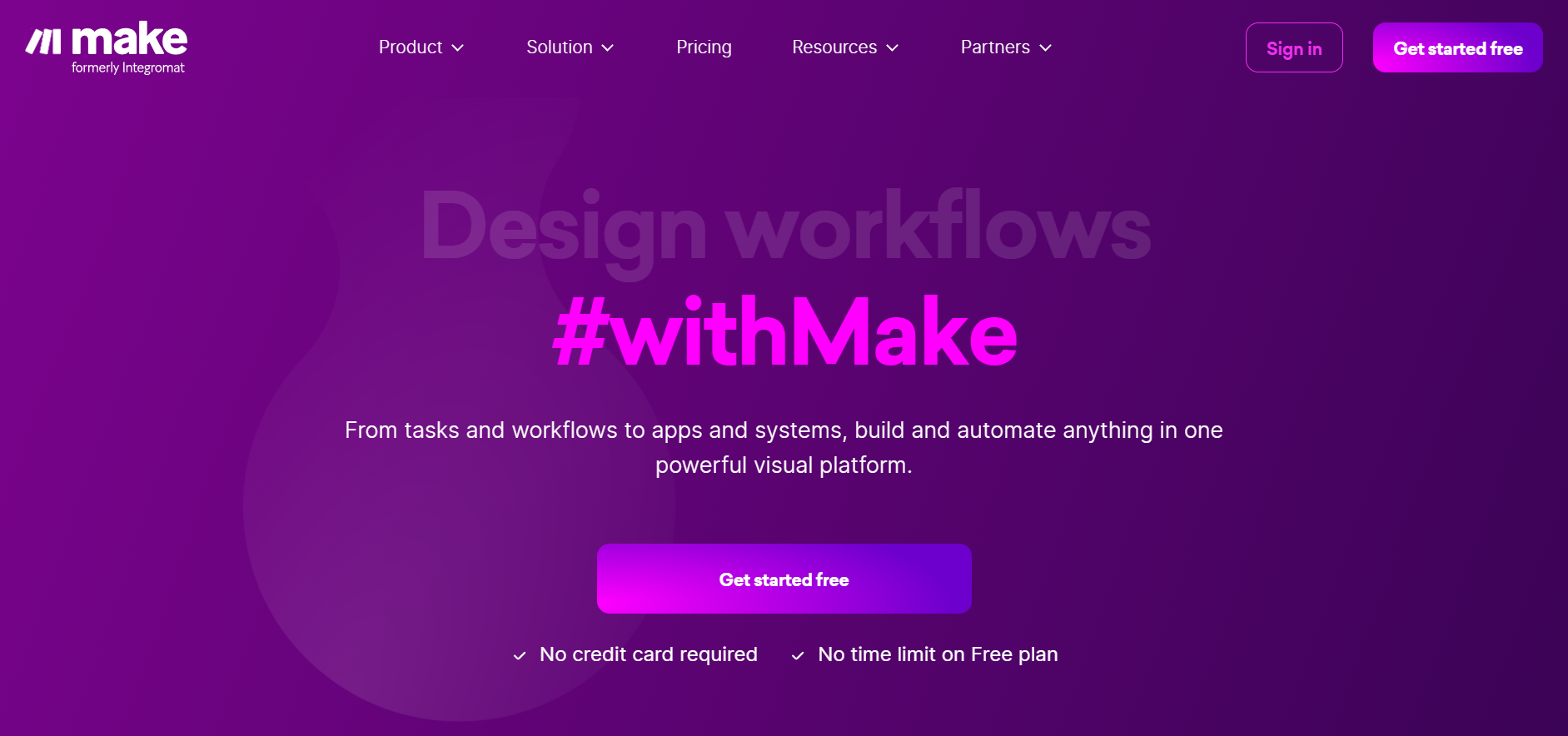
Make_hq is a no-code automation platform that helps startups automate their business processes and streamline their workflow. The platform offers a range of pre-built automations that allow startups to automate various repetitive tasks, such as data entry, file management, and email communication. Startups can also create custom workflows using Make_hq’s drag-and-drop interface, which integrates with popular business tools like Google Sheets, Slack, and Trello.
Make_hq’s automation features help startups reduce the time and effort required for manual tasks, allowing them to focus on higher-value activities that drive business growth. Whether it’s automating data entry, managing files, or streamlining communication, Make_hq is an essential no-code tool for startups looking to improve productivity and streamline their workflow.
5. Gumroad – Selling

Startups can use Gumroad, a no-code platform, to sell digital products like eBooks, courses, music, and software directly to customers. With Gumroad, startups can quickly set up an online store and customize its design to reflect their brand. The platform offers secure payment processing, analytics, and customer management features, simplifying the sales and customer relationship management process for startups.
Gumroad also offers tools for creating discount codes, affiliate programs, and upsells, allowing startups to maximize their sales and revenue. With its user-friendly interface and robust features, Gumroad is an essential no-code tool for startups. It aims to sell their digital products online without the need for a dedicated e-commerce platform or developer.
6. Beehiiv – Newsletter

Beehiiv is a no-code platform for startups to create and send newsletters to their subscribers. With Beehiiv, startups can design and personalize newsletters using a drag-and-drop interface, selecting from various templates and themes. The platform includes features like list management, email automation, and analytics, simplifying the process of managing newsletter campaigns and tracking performance.
Beehiiv integrates with Mailchimp, Zapier, and Shopify, enabling startups to easily connect and automate their workflow across various platforms. With its user-friendly interface and powerful features, Beehiiv is a crucial no-code tool for startups. It aims to expand their audience and enhance engagement through effective email marketing.
7. Testimonial.to – Testimonials

Testimonial.to is a no-code platform that allows startups to collect and showcase customer testimonials on their website. With Testimonial.to, startups can create a customizable testimonial form that allows customers to leave feedback, ratings, and reviews. The platform also offers features such as moderation, approval, and publishing, making it easy for startups to manage their testimonials and showcase them on their website.
Testimonial.to integrates with WordPress, Shopify, and Squarespace, enabling startups to effortlessly incorporate their testimonials into their website or e-commerce platform. With its user-friendly interface and powerful features, Testimonial.to is a vital no-code tool for startups. It aims to enhance social proof, establish credibility, and increase conversions using customer testimonials.
8. Wotnot.io – Chatbot
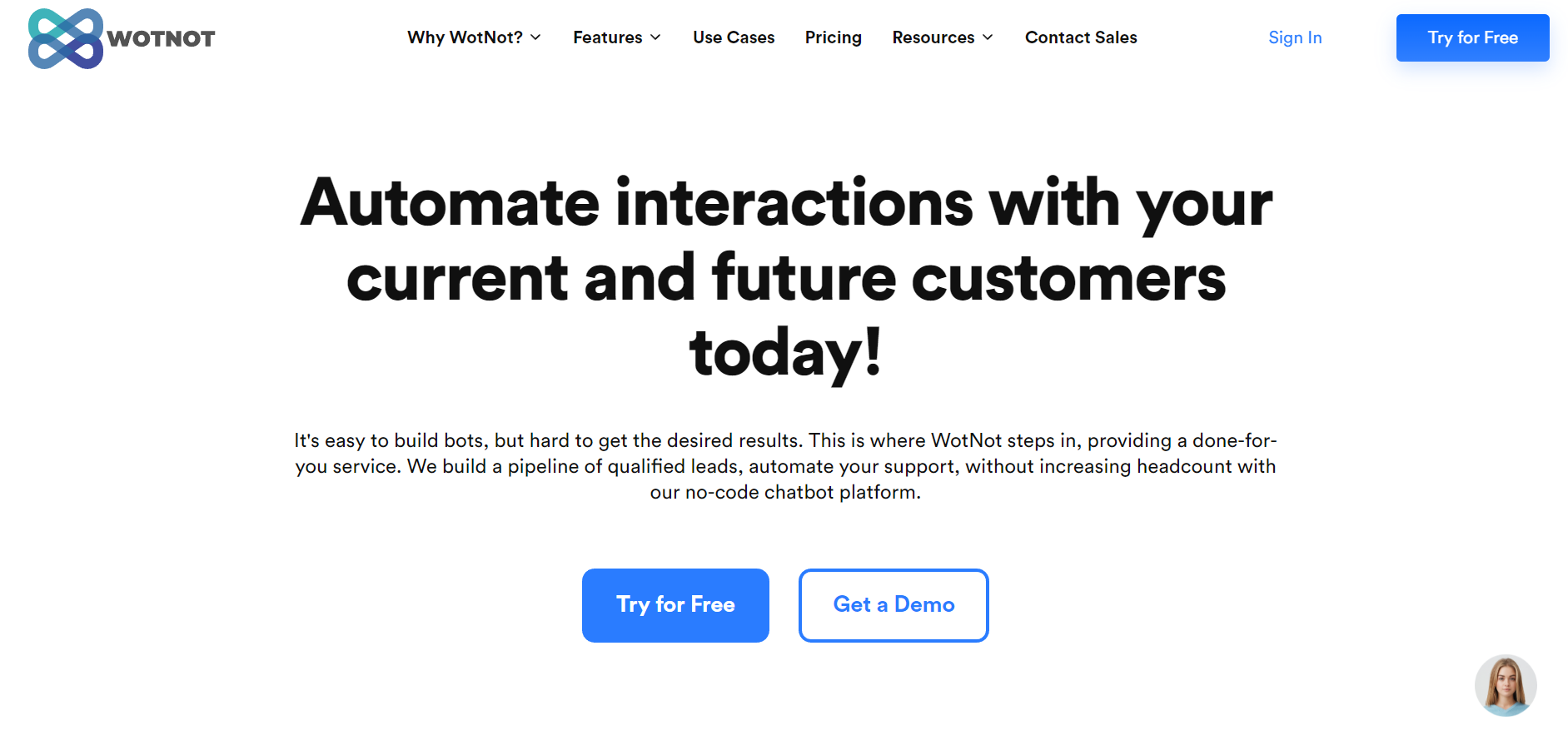
Wotnot.io is a no-code platform for startups to build and launch AI-powered chatbots on their website, social media, and messaging platforms. With Wotnot.io, startups can create and personalize chatbots using a simple drag-and-drop interface, selecting from various templates and themes. The platform includes features like natural language processing, integration with third-party tools, and analytics. It enables startups to automate customer service and engage with their customers round the clock.
Wotnot.io seamlessly integrates with Zendesk, Hubspot, and Shopify, enabling startups to effortlessly incorporate their chatbots into their customer service workflow. With its user-friendly interface and powerful features, Wotnot.io is a crucial no-code tool for startups. It aims to improve customer service, boost engagement, and streamline workflow using AI-powered chatbots.
9. Copy.ai – Writing Copy
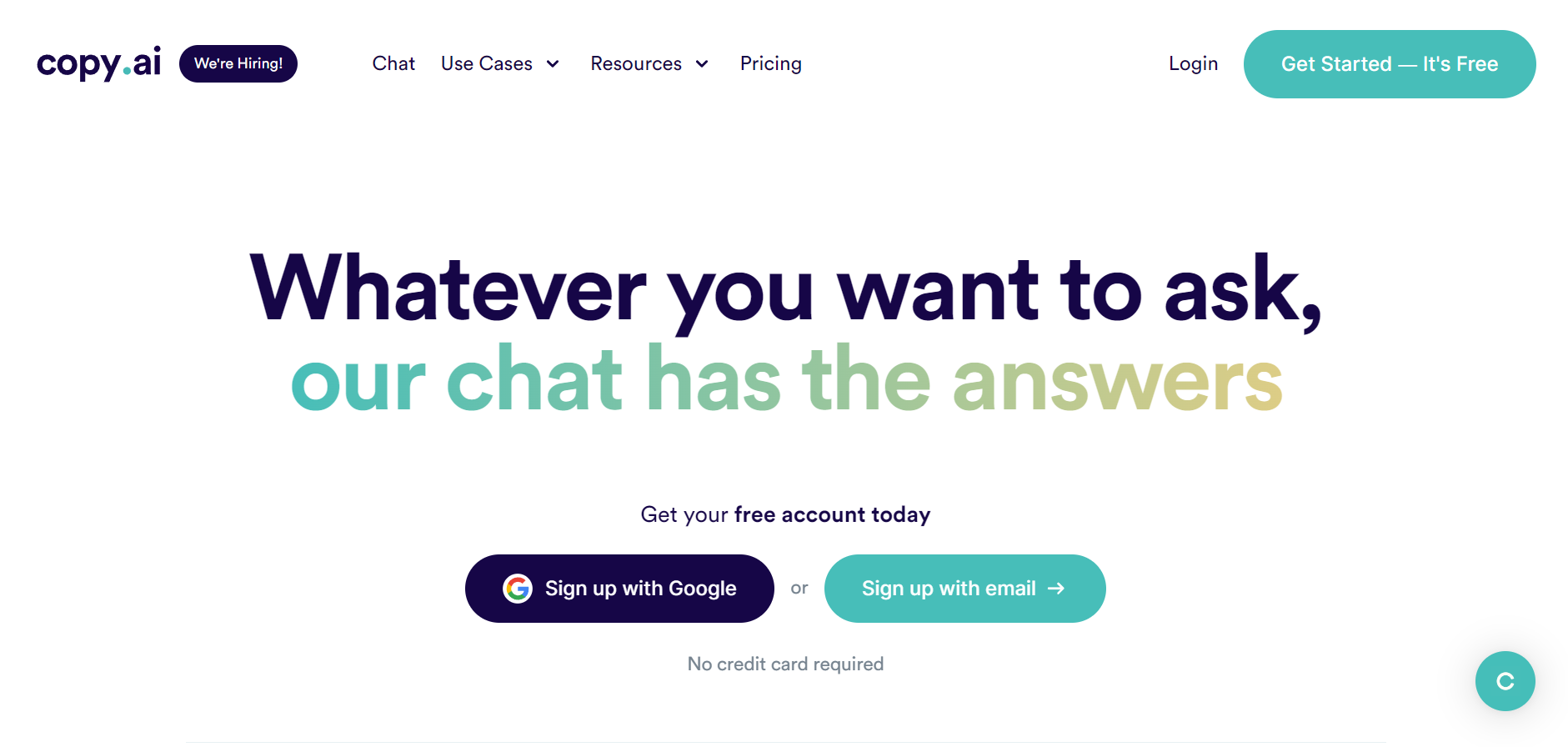
Copy.ai is a no-code platform that empowers startups to create excellent marketing copy, product descriptions, and social media posts using AI-powered language models. With Copy.ai, startups can input a brief description or topic and generate multiple text variations using advanced algorithms and natural language processing. The platform provides features like tone and style selection, content optimization, and formatting, simplifying the process of creating captivating and persuasive copy within minutes.
Copy.ai seamlessly integrates with WordPress, HubSpot, and Google Docs, enabling startups to effortlessly incorporate their copywriting into their workflow. With its user-friendly interface and powerful features, Copy.ai is a must-have no-code tool for startups. It aims to streamline content creation, boost productivity, and enhance online presence through top-notch copywriting.
10. TheQuillBot – Rephraser
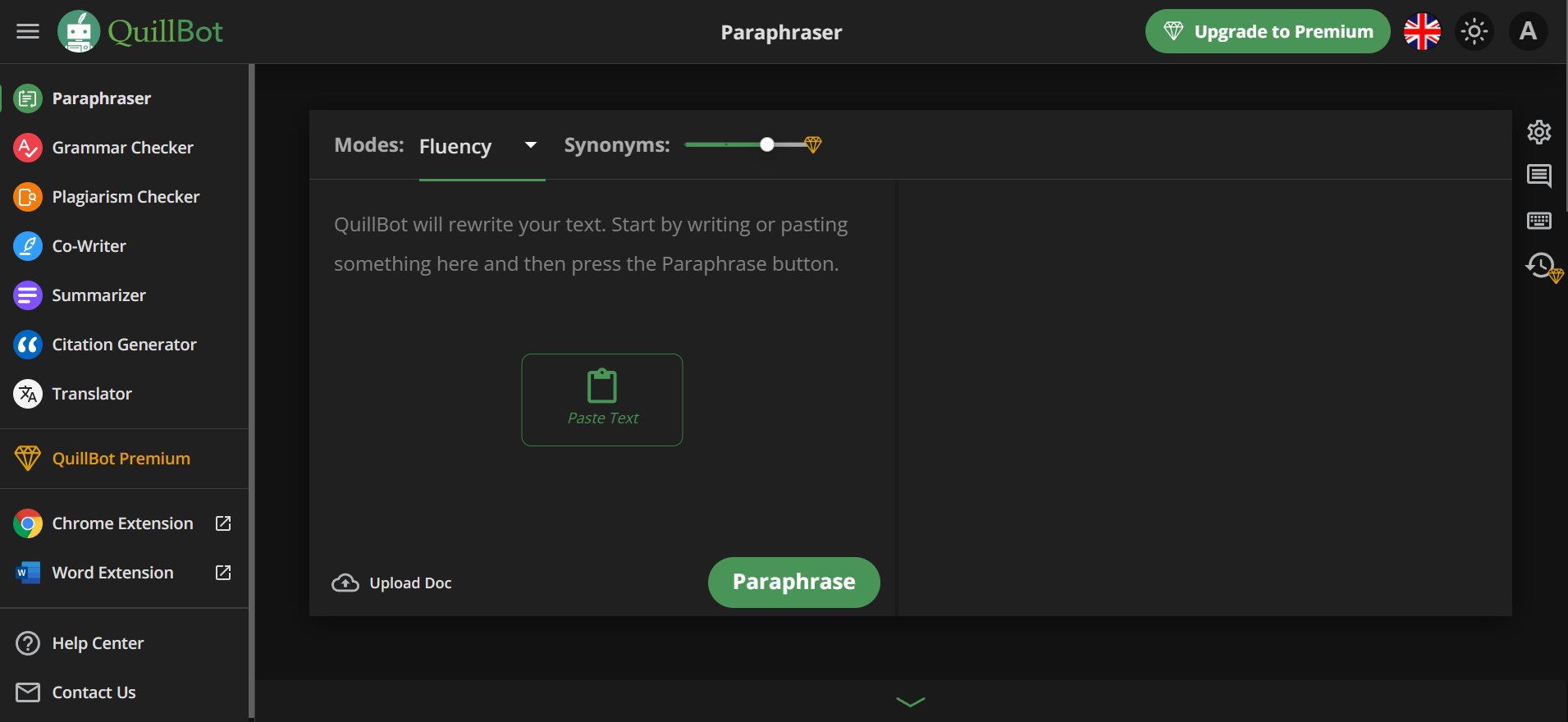
TheQuillBot is a no-code platform that helps startups generate high-quality content by providing AI-powered rephrasing and paraphrasing services. With TheQuillBot, startups can enter a block of text and generate multiple variations using advanced algorithms and natural language processing. The platform offers features such as synonym selection, tone adjustment, and content optimization, making it easy for startups to create unique and engaging content.
TheQuillBot integrates with Google Docs and Microsoft Office, allowing startups to effortlessly incorporate their content creation into their workflow. With its user-friendly interface and powerful features, TheQuillBot is a vital no-code tool for startups. It aims to enhance content creation, boost productivity, and improve their online presence through efficient rephrasing and paraphrasing.
11. Loom – Video

Startups can create and share video content effortlessly using Loom, a no-code platform. Loom provides a simple interface that enables startups to record, edit, and share high-quality videos quickly. The platform offers screen recording, webcam recording, and audio editing features, enabling startups to create compelling video content that resonates with their audience.
Loom seamlessly integrates with popular business tools like Slack and Trello, enabling startups to incorporate video creation into their workflow effortlessly. With its user-friendly interface and powerful features, Loom is a must-have no-code tool for startups. It aims to enhance communication, increase engagement, and boost online presence through impactful video content.
12. Vmaker – Screen and Webcam Recording Videos

Vmaker is a no-code platform that empowers startups to create professional-grade screen and webcam recording videos with ease. With Vmaker, startups can quickly record, edit, and share high-quality videos using a simple interface. The platform offers features such as screen recording, webcam recording, audio recording, and video editing, allowing startups to create engaging video content that captures their audience’s attention.
Vmaker integrates with popular business tools like Google Drive, Slack, and Asana, enabling seamless video integration into your workflow. With its user-friendly interface and powerful features, Vmaker is an essential no-code tool for startups. It aims to enhance communication, engagement, and online presence through screen and webcam recording videos.
Frequently Asked Questions:
Can anyone use no-code tools?
Yes, anyone can use no-code tools regardless of their technical skills.
Are no-code tools cost-effective?
Yes, no-code tools are cost-effective and can save startups the cost of hiring developers or outsourcing their projects.
What are the benefits of using no-code tools?
No-code tools offer startups the opportunity to streamline their operations, save time and money, and focus on growing their business.
Can I create custom solutions with no-code tools?
Yes, no-code tools offer a range of customization options, allowing you to create custom solutions for your business.
Are no-code tools secure?
Yes, most no-code tools offer security features to protect your data and ensure your applications are safe and secure.
Closing Thoughts:
No-code tools have revolutionized the way startups build and deploy software. No-code tools simplify operations, save costs, and provide flexibility for startups to grow. From automation to website building, there’s a tool for every need. I hope this blog post helped you discover essential no-code tools for your startup.
Save time and money by exploring these no-code tools to streamline your startup processes. Try them out and see the difference they can make in your business today.
Discover the Future of Software Today!
Stop guessing and start choosing the right software and services for your business with Prodocast. By using our platform you can find, compare, and check out reviews of the software and services you need before making a purchase. Say goodbye to wasted time and money on the wrong solutions and say hello to success. With Prodocast, you can easily access the latest solutions, get expert advice and optimize your operations.
Start making informed decisions with Prodocast today – join Prodocast now!


